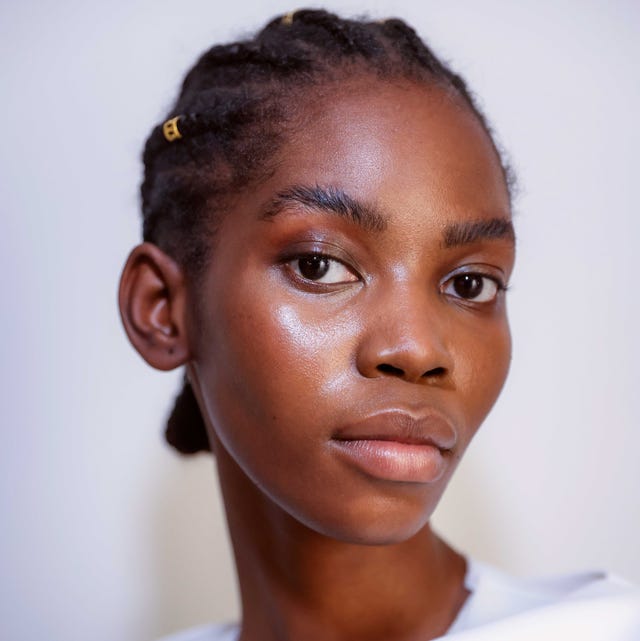

Luke Walker/BFC
While it’s true there is no magic bullet when it comes to perfecting skin, one ingredient comes pretty close: retinol. Whether you’re struggling with acne, scarring, or hyperpigmentation, retinol can pretty much solve all your skin woes. And in case you’re debating getting Botox for fine lines, retinol is also a powerful, non-invasive alternative found in many anti-aging products—including retinol eye creams to treat crow’s feet.
“Retinol is a vitamin A derivative that loosens the bonds between the top layer of cells and unclogs pores to help with acne, but also tricks the skin into thinking it is wounded to stimulate collagen production,” says Dr. Purvisha Patel, a Tennessee-based dermatologist and the founder of Visha Skincare. “It is the alcohol form of the derivative…and is the gold standard for a safe, effective ingredient in skin care that helps reduce fine lines and wrinkles.”
And for those with oily skin, retinol helps to shrink oil glands to reduce oil production in the skin.
The beauty of retinol is the varying strengths and versions offered, which yield different results for a gamut of skin types. (In addition to being found in over-the-counter creams and serums, Dr. Patel notes that retinol is “available in stronger percentages and orally by prescription.”) But it’s also a complicated ingredient to get into. While you can add a vitamin C serum into your routine from one day to the next, retinol can be intense, and not all formulas are created equal. But just skipping over this ingredient entirely? No way. If you’re ready to add retinol to your routine, here are 19 amazing options for every skin concern and type. And keep scrolling to find answers to all your retinol queries courtesy of Dr. Jennifer Chwalek, MD of Union Square Laser Dermatology and fellow New York-based dermatologist Dr. Shereene Idriss.
Advertisement – Continue Reading Below
Advertisement – Continue Reading Below

